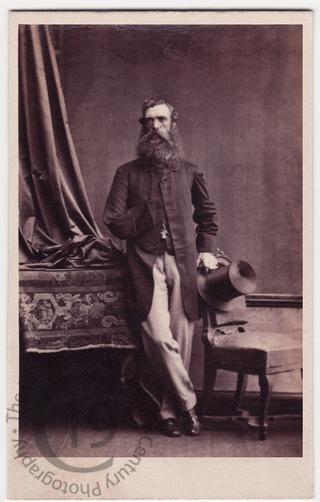
Colonel Mark Walker VC
Mark Walker was born in Ireland at Gore Point in County Westmeath on 24 November 1827. He was a 26-year-old lieutenant in the 30th Regiment of Foot during the Crimean War. At the Battle of Inkerman in 1854 his conspicuous gallantry in the face of the enemy earned him the Victoria Cross. During his service in the Crimea, he was wounded by a howitzer shell and as a result of his injuries had his right arm amputated.
He was later knighted and achieved the rank of General. He died at Arlington in Devon on 18 July 1902.
An obituary appeared in the Irish Times (22 July 1902): 'As was announced on Saturday, the death of General Sir Mark Walker, KCB, VC, took place on the 8th inst. at Arlington Rectory, Barnstaple. The deceased General, who had a distinguished career, was the only surviving brother of the Right Hon. Lord Justice Walker. Sir Mark entered the Army in 1847, first serving the 30th Regiment. He was present at the Battle of Alma, when he was slightly wounded. At Inkerman, for his conspicuous gallant conduct, he received the Victoria Cross, and was afterwards mentioned in Lord Raglan's despatches. He lost an arm in the trenches before Sebastopol. Promoted to the Buffs, he accompanied that regiment to India and China, and in the Chinese War he served on the Staff. He had a five years' command in India, and after his return to England commanded a brigade at Aldershot, and subsequently was appointed Commander at Gibraltar. He also held the position of Honorary Colonel of the Derbyshire Regiment. General Walker, who was as modest as he was brave, was a splendid specimen of the Irish soldier, and his interest in the recent South African War was intensified by the valour of his countrymen on the veldt. He retired from the Army on attaining the rank of General.'
Photographed by Camille Silvy of London on 22 July 1861.
Code: 122318




